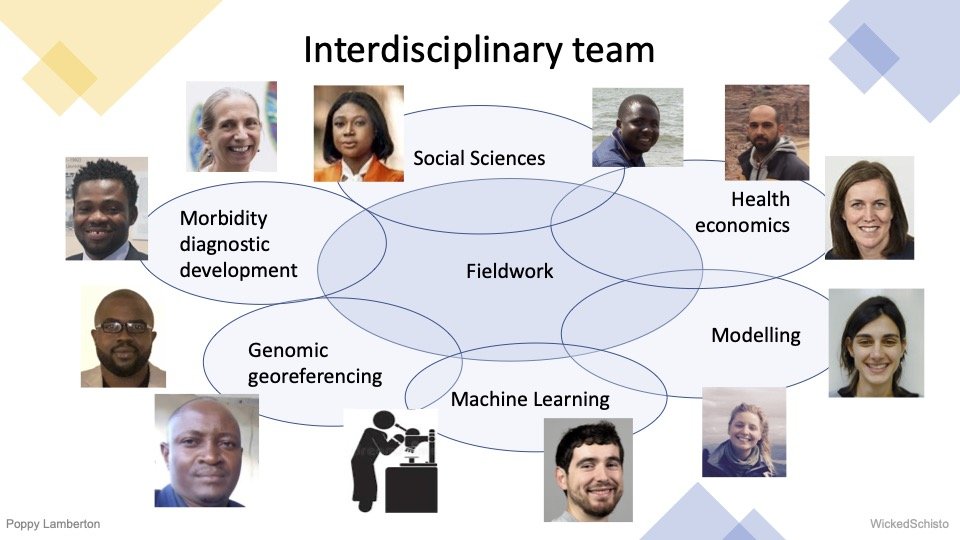Developing a robust interdisciplinary-informed WASH framework for the prevention and elimination of the wicked public-health problem of schistosomiasis
ERC Consolidator Grant - ERC-CoG-2021
PI: Poppy Lamberton
Over 240 million people have schistosomiasis, a debilitating disease intrinsically linked to inadequate water, sanitation and hygiene (WASH). A wicked problem is a social or cultural problem that is difficult or impossible to solve. Despite extensive mass drug administration (MDA), schistosomiasis remains a wicked public-health problem. WASH-interventions are needed to reach the World Health Organization (WHO) 2030 goal of elimination as a public-health problem. Yet we don’t understand the full impact of schistosomiasis, and therefore cannot identify what feasible and cost-effective WASH interventions best reduce this impact, nor the threats to long-term control programme success, and how to mitigate these. We will address five ambitious questions:
1. What are the true health, economic and societal impacts of schistosomiasis?
2. What are the most cost-effective combinations of WASH and MDA interventions?
3. How best can we scale-up these public-health WASH interventions to reach WHO 2030 goals?
4. What are the risks from human mobility to achieving and sustaining WHO 2030 goals?
5. How can cross-sectorial policy buy-in be leveraged to help reach these goals?
We will use innovative interdisciplinary methods to tackle this wicked public-health problem including: a bottom-up approach to identify acceptable, equitable, cost-effective, feasible, multifaceted interventions with highest ‘value for money’ and impact on schistosomiasis health-related quality of life; develop a field-based morbidity marker to monitor success; combine parasite genomics with mathematical models to inform on control programme endpoints; and identify community, through to international level, facilitators to leverage for intervention success. Our research will inform policymakers in Uganda and beyond on how best to eliminate schistosomiasis. We will fill a critical global-health knowledge gap and provide a framework for other WASH-associated diseases.
Interdisciplinary team
Project Management: Mr Dave Iglesias. Contact for any enquiries: wickedschisto-pm@glasgow.ac.uk
Impact of WASH on Transmission: Mr Moses Arinaitwe
Health Economics: Professor Emma McIntosh, Dr Sergi Alonso
Machine Learning and Modelling: Dr Jess Clark, Dr Joaquin Prada, Dr Mafalda Viana
Morbidity Diagnostic Development: Dr Derick Osakunor, Dr Justin Nono Komguep
Social Sciences: Mr Lazaaro Mujumbusi, Ms Praise Adeyemo
Geospatial Drivers of Transmission: Dr Lydia Trippler
Genomic Georeferencing: To be recruited. Contact poppy.lamberton@glasgow.ac.uk if interested.


